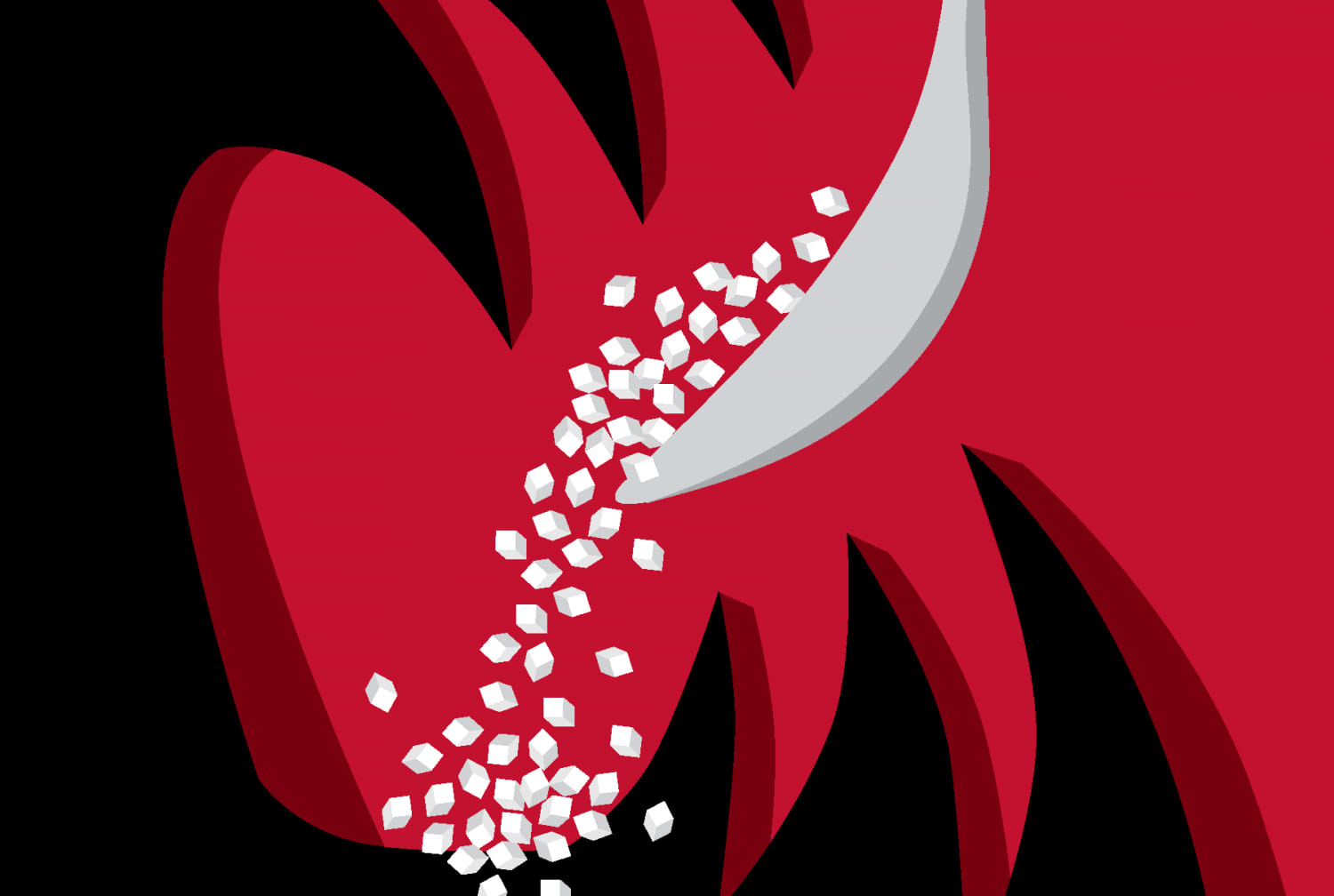High-Fructose Corn Syrup Promotes Colon Tumor Growth in Mice
Consuming the equivalent of one can of soda per day caused mice predisposed to colon cancer to develop larger tumors, according to a study by Weill Cornell Medicine and NewYork-Presbyterian investigators.
The study, published March 22 in the print issue of Science, shows how high-fructose corn syrup fuels the growth of colon tumors in these mice and demonstrated a potential strategy to block this excess tumor growth. Though more study is needed to demonstrate whether high-fructose corn syrup promotes colon tumor growth in humans, the findings might have implications for cancer treatment or prevention. Original article [here]

Sickeningly Sweet
Biochemist Dr. Lewis Cantley is Finding Increasing Evidence of a Strong Connection Between Sugar and Cancer
Dr. Lewis Cantley hasn’t eaten sugar in decades. “I have a very simple rule,” he says. “I eat fruit, but I don’t eat anything that has sugar added to it. And I guarantee everybody would be better off if they ate zero sugar.” Original article [here]
Illustration by Jennifer Kloiber Infante

Top oncologist to study effect of diet on cancer drugs
Siddhartha Mukherjee says trial is first in a series on ‘rethinking human diets for cancer’
A groundbreaking clinical trial on whether diet could boost the effectiveness of cancer drugs is set to be launched by one of the world’s leading oncologists. Original article [here]
Siddhartha Mukherjee, physician, biologist, oncologist and author best known for his Pulitzer-winning 2010 book The Emperor of All Maladies: A Biography of Cancer.
Photograph: Graeme Robertson for the Guardian

$50
Level 3
Funds metabolomics (measurement of 275 blood metabolites) analysis for 1 participant for one week
$500
Level 7
Funds the processing, sectioning, and staining of 1 patient's tumor to assess cancer PI3K signaling while on the ketogenic diet
$1,000
Level 8
Funds 1 week of statistics and data analysis to prove the ketogenic diet enhances PI3K therapy
$2,500
Level 9
Funds the measurement of 20 blood cytokines (signals from the immune system) before and after the diet intervention
$10,000
Level 10
creates 3 patient derived cell lines that can be used in future drug screen studies




